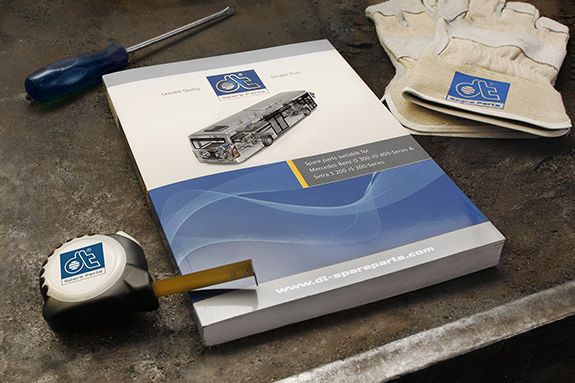For anyone with a STEM bent of mind, there is often a strong pull toward higher-paying tech careers like software development, cybersecurity, and cloud architect. These career options are a good fit for people who like sitting in front of their computers all day. What if you like math and science, but find things like ecology and the water supply more interesting than writing algorithms and defining functions?
If that sounds more like you, then environmental engineering may prove a better career fit. Not sure what an environmental engineer is or does? Keep reading and we’ll cover everything you need to know about becoming environmental engineering.
What Is an Environmental Engineer?
An environmental engineer is someone who applies the principles of engineering to environmental problems that affect human health. Environmental engineers deal with a wide range of environmental issues, such as pollutions, water purity, recycling, and even waste management.
Environmental engineers may work on large-scale or small-scale problems. For example, let’s say a company plans on building a new high rise in a major city. Major cities often have poor air quality.
The company might hire an environmental engineer to design a system to keep the indoor air quality in the building to a higher level than the outside air. This would represent a small-scale problem.
By contrast, a town or city might hire one or several environmental engineers to investigate contamination with the municipal water supply. That kind of contamination can pose a public health threat to thousands or tens of thousands of people. This would represent a large-scale problem that might require an environmental engineer.
Environmental Engineering Education
If you’re interested in environmental engineering or any kind of engineering, you’ll want to start laying the groundwork in high school. Get your essential math courses, such as trig, algebra, and geometry. If it’s available, take pre-calculus as well.
In terms of sciences, you’ll want biology, chemistry, earth science, and physics. Some high schools offer an elective course in environmental science, which can give you an early taste of what you can expect in college.
College
If you want to work as an environmental engineer, you’ll need at least a bachelor’s degree in environmental engineering or a closely related engineering discipline like chemical engineering. You’ll take courses in several areas, such as:
- Advanced mathematics
- Biology
- Chemistry
- Physics
- Engineering fundamentals
- Fluid mechanics
- Thermodynamics
Most environmental engineering programs will offer structured work experiences at environmental engineering companies, such as HCI Environmental. Future employers will look favorably on these practical work experiences, so you should take advantage of them. A bachelor’s degree will qualify you for entry-level positions in the field.
Graduate Programs
If you want to conduct independent research or assume a supervisory role at some point, you’ll likely want a master’s degree or a PhD. Some colleges offer longer, combined programs that grant you a bachelor’s degree and a master’s degree. Otherwise, you will need a standalone master’s or PhD program.
Environmental Engineer Certifications
Many engineering positions require a license or other certification. That generally isn’t the case for entry-level environmental engineering jobs. That being said, you likely will want certifications as your career progresses.
After you get your bachelor’s, you can take the Fundamentals of Engineering or FE exam. Passing this test makes you an engineering intern or an engineer in training. This is the first step on the way to a Professional Engineering license.
To get the Professional Engineering license, you must accumulate four years of engineering work experience. Then, you can take the Principles and Practice of Engineering exam.
If you pass that exam, you get your Professional Engineering license. That license can open up job opportunities that would otherwise remain closed.
What Do Environmental Engineers Do?
Environmental engineering jobs can vary wildly based on your interests and specific expertise. Many environmental engineers work in industrial settings. They help ensure that the facility doesn’t leak pollutants into the local soil or water, or vent contaminants into the air.
In other cases, they help evaluate sites where contamination has already happened and help devise solutions for containment and cleanup. The contaminated water example from above is a good example of this kind of work.
Some environmental engineers focus on large-scale ecological problems like ozone depletion. Others might help design a city’s new wastewater management system.
You may also find work as an advisor or analyst for building projects. Government agencies may hire you for input on remediation projects. You may also find work inspecting industrial or manufacturing facilities for compliance with environmental regulations.
You should give some thought to the kind of work you think you’d like to do early on in your college education. Pinning down some areas of interest will let you steer your coursework a little to help make you more qualified for that kind of work.
Environmental Engineer Salary
Anyone considering their future career options is curious about what kind of salary they can make in a field. For environmental engineers, the median salary is around $89,000 a year.
It’s important to note that the median salary can vary a lot based on your location. Jobs in urban settings often command higher salaries, but also come with a much higher cost of living.
Different areas will also have different levels of demand for certain areas of environmental engineering. That demand or lack of demand can raise or lower the salaries offered in an area.
Is Environmental Engineering for You?
Wondering if environmental engineering is a good fit for you? Consider your interests. You must enjoy math and the sciences. You also need an interest in like nature, pollution, and managing environmental problems.
The good news is that you get a fairly wide range of potential jobs. You may end up inspecting industrial sites or advising on remediation projects. Plus, you can likely find a job making fairly decent money at it.
Looking for more career or business tips and advice? Check out the posts in our Business section.

















